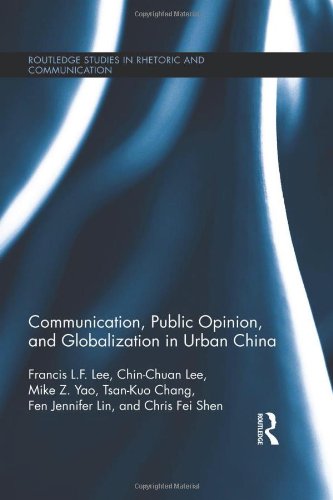

Most ebook files are in PDF format, so you can easily read them using various software such as Foxit Reader or directly on the Google Chrome browser.
Some ebook files are released by publishers in other formats such as .awz, .mobi, .epub, .fb2, etc. You may need to install specific software to read these formats on mobile/PC, such as Calibre.
Please read the tutorial at this link: https://ebookbell.com/faq
We offer FREE conversion to the popular formats you request; however, this may take some time. Therefore, right after payment, please email us, and we will try to provide the service as quickly as possible.
For some exceptional file formats or broken links (if any), please refrain from opening any disputes. Instead, email us first, and we will try to assist within a maximum of 6 hours.
EbookBell Team

4.7
36 reviewsAs China is increasingly integrated into the processes of economic, political, social, and cultural globalization, important questions arise about how Chinese people perceive and evaluate such processes. At the same time, international communication scholars have long been interested in how local, national, and transnational media communications shape people’s attitudes and values. Combining these two concerns, this book examines a range of questions pertinent to public opinion toward globalization in urban China: To what degree are the urban residents in China exposed to the influences from the outside world? How many transnational social connections does a typical urban Chinese citizen have? How often do they consume foreign media? To what extent are they aware of the notion of globalization, and what do they think about it? Do they believe that globalization is beneficial to China, to the city where they live, and to them personally? How do people’s social connections and communication activities shape their views toward globalization and the outside world? This book tackles these and other questions systematically by analyzing a four-city comparative survey of urban Chinese residents, demonstrating the complexities of public opinion in China. Media consumption does relate, though by no means straightforwardly, to people’s attitudes and beliefs, and this book provides much needed information and insights about Chinese public opinion on globalization. It also develops fresh conceptual and empirical insights on issues such as public opinion toward US-China relations, Chinese people’s nationalistic sentiments, and approaches to analyze attitudes toward globalization.